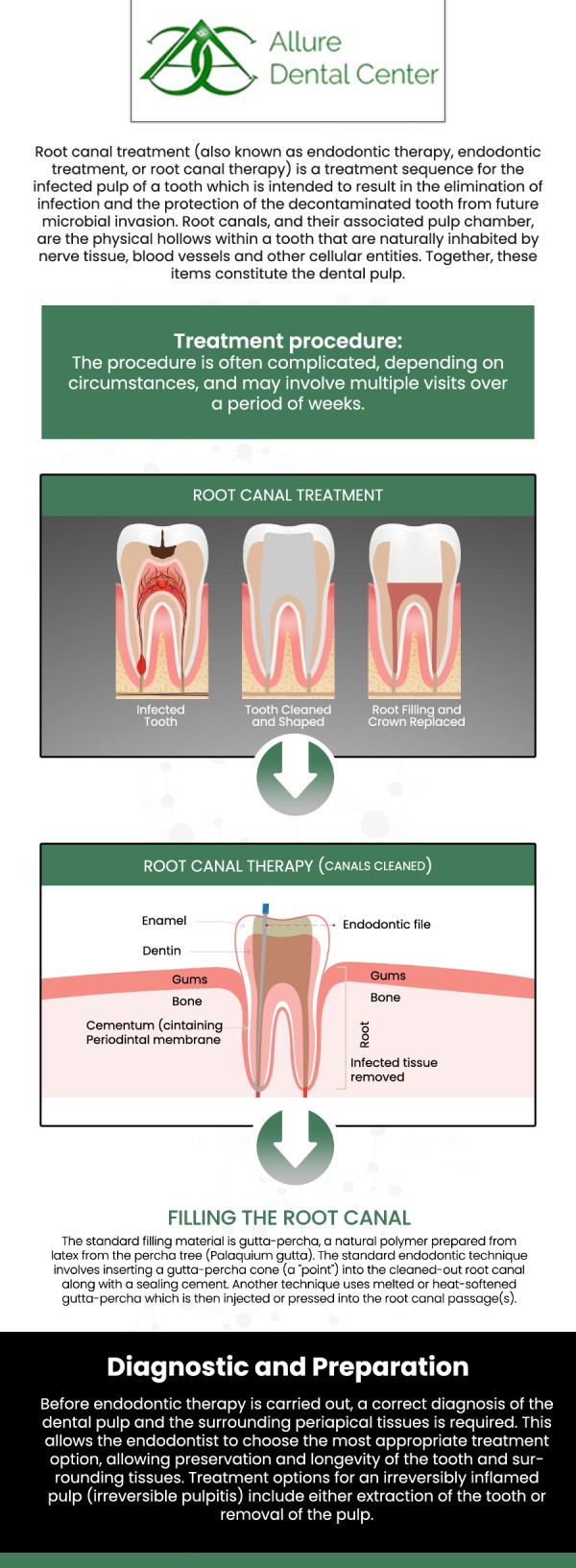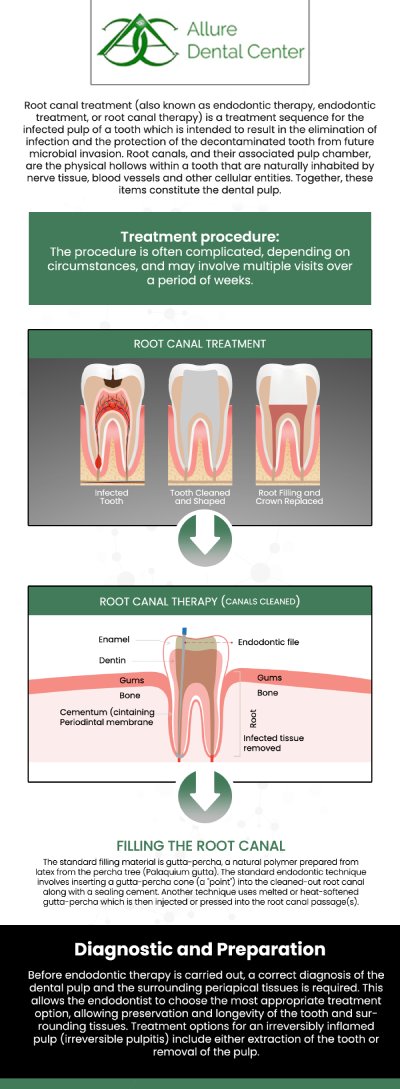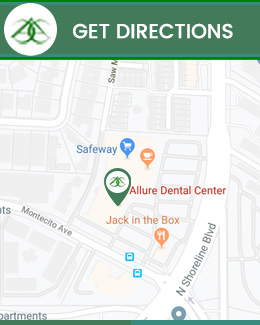How Much Does It Cost to Get a Root Canal in CA?
At Allure Dental Center, Dr. Trinh Lee and Dr. Suzanna Lee offer safe, professional, and affordable root canals to get your oral health back on track. We accept a wide variety of insurances and offer payment plans to best suit your financial needs. On average, a root canal in California typically costs between $700 and $1,500 per tooth, depending on the tooth’s location and the complexity of the procedure. For more information about our root canal services or to book an appointment, you can reach out to us at your earliest convenience. We are conveniently located at 570 N. Shoreline Blvd, Mountain View, CA 94043.




Table of Contents:
How much does it cost to get a root canal in CA?
How much is a root canal in the US without insurance?
What happens if I can’t afford a root canal?
What is an alternative to a root canal?
How do Dr. Trinh Lee and Dr. Suzanna Lee at Allure Dental Center keep root canal treatment affordable?
Your dentist may suggest a root canal treatment if you have an infected or abscessed tooth. This can happen when a cavity is left untreated, if your tooth cracks, or is damaged due to trauma.
During this dental procedure, the inflamed pulp is removed from the tooth, the surfaces inside the tooth are cleaned and disinfected, and a filling is placed to protect the tooth from developing further damage.
The cost of a root canal in California will vary depending on your location, the experience level of your dentist, the complexity of your root canal and its location within the mouth, and if you have coverage through your insurance.
With insurance, the average cost of a root canal is as follows:
– Front tooth – $200 to $1,100
– Bicuspid or premolar – $200 to $1,250
– Molar – $300 to $1,472
The cost of a root canal typically includes the procedure, anesthesia, x-rays, and overhead. Consultations are usually complimentary, though this may vary depending on the facility and should be asked about prior to your visit.
Depending on your insurance plan, your root canal may be completely or partially covered. You can always ask you dental provider to run your insurance first to see what the coverage is or contact your insurance directly prior to your appointment for more information.
As mentioned above, the cost of your root canal will depend on several factors, including:
– The complexity of your root canal.
– Where the affected tooth is in the mouth.
– The type of root canal that is needed.
– The experience level of your dentist.
– Whether a specialist (endodontist) is required.
– Any additional testing you may need prior to the procedure.
– Your insurance coverage.
Without insurance, you can expect to pay the following amount for a single root canal:
– Front tooth – $600 to $1,100
– Bicuspid or premolar – $700 to $1,250
– Molar – $850 to $1,475
Many dental offices will allow you to finance your root canal or pay the cost in installments through a payment plan. Contact your dental practitioner’s office to find out if they offer these options, or to see what other payment alternatives may be available.
If your insurance doesn’t cover the cost of the procedure, or you’re unable to provide the complete payment upfront, contact the dental office to see if they offer any alternative payment options.
Most dentists are willing to provide payment alternatives that fit within your budget so you can receive the dental care you need. This includes completing dental work in stages so that you can pay for pieces at a time, or offering financing or payment plan options.
You can also check to see if you qualify for any government funded dental care by getting in touch with your local social service agency. If you meet certain criteria, you may qualify for financial assistance to help get you the dental care you need.
If you’re suffering from an infected or decaying tooth, a root canal is often the first procedure that comes to mind. However, there are several alternatives available depending on the nature of your infection, the severity, and where it is in your mouth. These root canal alternatives include:
– Direct Pulp Capping. This is a procedure used to treat, repair, and maintain vital pulp by using special dental materials. Once the pulp is treated and filled, the pulp capping material is applied to protect the tooth.
– Pulpotomy. If your tooth is still alive and responds to temperature and sensation, this procedure may be performed. The pulp is removed from the main part of the tooth, filled, and then covered to protect the area.
– Pulpectomy. This procedure may be performed on teeth that are no longer alive, removing the pulp from all parts of the tooth (including the root). The inner chamber of the tooth is then cleaned, disinfected, and filled to prevent infection.
– Endodontic Retreatment. In this procedure, the tooth is reopened following a failed root canal treatment. The filling materials that were placed during the original root canal are removed and the area is examined, reshaped, cleaned, and disinfected. New filling materials are then inserted and a temporary filling is placed. A crown is then placed over the area to seal and protect it.
– Endodontic Surgery. If other less-invasive treatment methods have failed, or your condition has begun to impact your bones or jaw, you may require surgery that is specifically tailored to your dental condition.
– Tooth Extraction. While a dentist will always do everything possible to save your tooth, it isn’t always possible. Removing the tooth is often a last resort, and dental implants are often required after extraction to keep your bite healthy and your teeth from shifting.
At Allure Dental Center, our team of dental professionals is dedicated to giving you safe, professional, and affordable care that you can depend on.
Dr. Trinh Lee and Dr. Suzanna Lee focus on providing affordable and gentle root canal treatments with clear pricing and personalized care. The average cost of a root canal in California typically depends on the tooth’s location and complexity—molars usually cost more than front teeth.
What makes Allure Dental Center different is its transparent approach. During your exam, you’ll receive a complete explanation of the procedure, expected costs, and whether your insurance can help cover it. They also offer flexible financing options to help spread out payments if needed.
Using modern technology and advanced techniques, Drs. Trinh and Suzanna Lee make root canal treatment as comfortable as possible. Most procedures are completed in just one or two visits, with a strong focus on preserving your natural tooth and avoiding future dental problems. Contact us today for more information about our root canal services or book an appointment online at your earliest convenience. We serve patients from Mountain View CA, Sunnyvale CA, Los Altos CA, Stanford CA, Menlo Park CA, Atherton CA, Loyola CA, Cupertino CA, Palo Alto CA, Redwood City CA, and surrounding areas.




